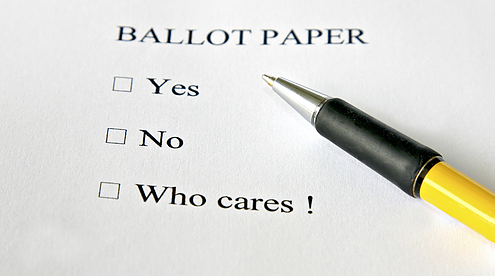As the 2017 general election approaches with frightening speed, it’s time to start thinking about voting. Young people are often harassed in the media for their low turnout at the polls. Many are quick to call us lazy and apathetic when it comes to politics. While it may be said that some people truly do not care who is in charge of their country, it is clear that there are significant socio-political barriers behind low voter turnout. These barriers don’t stop anyone from voting. However, in terms of cost-benefit analysis, going to the polls is simply not worth it for many. I will take a look at our largest demographic groups of non-voters.
Young People
It seems that every couple of days a New Zealand Herald article is released accusing young people of voter apathy because of their low turnout. They are not without evidence. In 2011, 37.27% of under 25’s who were enrolled did not vote. These results are not endemic to New Zealand. In fact, young people consistently have the lowest turnout rates across the globe. But saying young people do not care about politics misconstrues the issue.
One explanation is that young people do not feel as though they have much of a stake in society. Having children, a spouse and owning a home gives you stronger ties to your community. As a result, you have a greater interest in how schools and hospitals are run, where libraries are built and so on. In this sense, political participation is simply down to where you are in your life’s cycle.
Another reason is that political campaigns rarely focus on young people’s issues. The hot topics of election season are often things young people cannot relate to – at least not as much as their parents and grandparents. Policy on housing, tax cuts and superannuation are all designed to appeal to the huge chunk of middle and upper-class voters over the age of 25. Parties appeal to those who consistently vote because it gives them a greater chance of success. As a result, young people do not vote because they feel disenfranchised – if politicians aren’t going to address the issues that matter to me, why bother? Rock Enrol describes the issue perfectly in this diagram:

Studies show that young people are no less politically engaged than their older counterparts – they attend protests, they volunteer, they campaign on social media. But it is crucial that we are politically engaged where it counts.
People experiencing financial hardship
In the 2011 election, those who classified themselves as having ‘inadequate income’ were less likely to vote than those with adequate income. 28 per cent of those who felt they did not have enough money did not vote, compared to the 12 per cent of non-voters who had enough money to meet daily needs. Unemployed people voted even less, with 35 per cent choosing not to vote in 2011. It is no revelation to claim that poor people don’t vote as much as others do – in fact, the media tends to treat this as common sense. But to accept this seems almost paradoxical. Changes to legislation and social services can have a greater impact on people with low socioeconomic means than any other group. In fact, in the US, higher turnout among poorer people was positively correlated with more generous state welfare policies and a higher minimum wage.
The biggest barriers facing people who are struggling financially during elections are practical limitations. Busyness, illness, and transportation difficulties are some of the leading causes of non-participation. Taking time out of work to vote is not an option for some. Likewise, those who can only afford to travel by bus are far less likely to make the journey to polling booths.
A second explanation is, put simply, poor people have better things to worry about. Financial strain causes one to withdraw from external matters such as politics. These people have more immediate concerns such as making ends meet, holding onto their job, or finding one. Conversely it seems that those with high incomes feel a greater sense of public duty to vote. Those who move in the ‘right social circles’ may find that the cost of being politically informed is relatively low, whereas for those who are financially struggling, getting involved with one’s community may not be worth prioritising.

Recent migrants
Recent migrants (people who have lived in New Zealand 5 years or less) had the highest proportion of non-voters at 60 per cent. This includes people who could not vote due to visa status. This could be due to feeling as though they are not truly part of New Zealand yet. Data shows that a sense of ‘belonging to New Zealand’ is correlated to voting turnout. However, there is no reason to be concerned that migrants are forever left out of the voting process. Those who had lived here over 5 years showed very similar voting behaviour as those who were born here.
Lack of representation breeds political ambivalence. When it comes down to numbers, it is easier to pander to demographics with consistently high voting rates. However, democracy depends on addressing the needs of all types of people. New Zealand is fairly good at drafting policies that address the issues of many. But we still have a way to go. Organizations like Rock Enrol are setting a great example so far in empowering young people to engage in politics. A large part of this empowerment is simply being informed, and the more accessible election information is, the better.
Images from:
www.npr.org
www.rockenrol.org.nz/
www.radionz.co.nz




